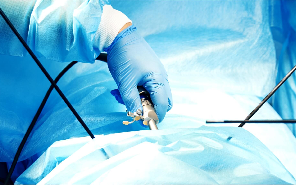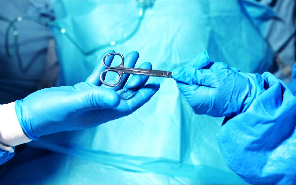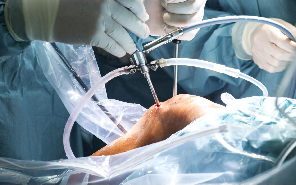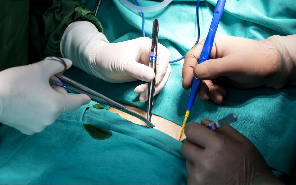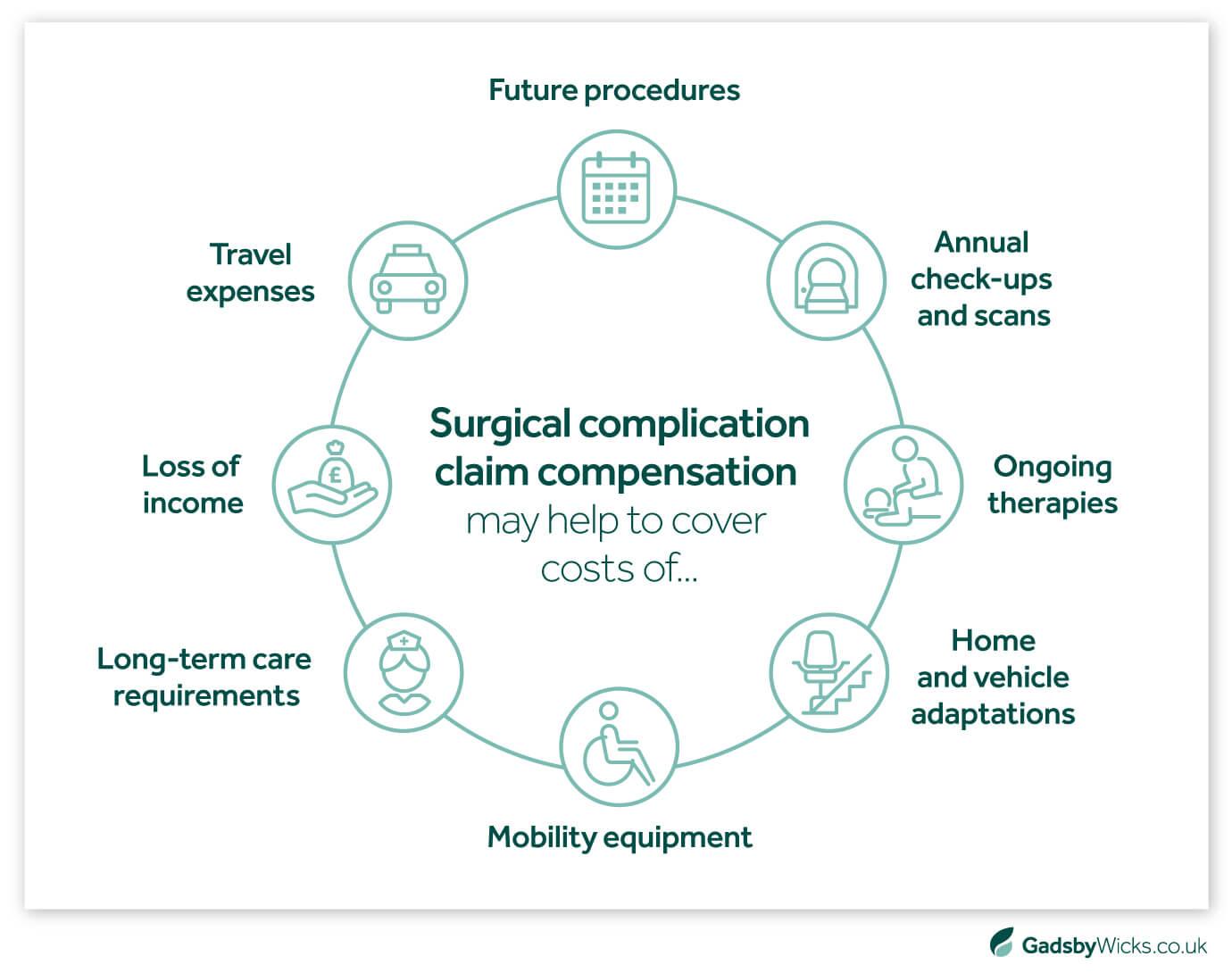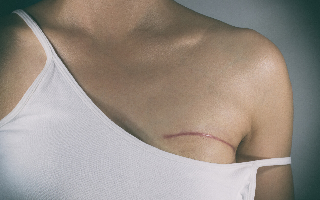
- Home >
- Surgical Negligence Claims
We know how preventable mistakes during surgery can have life-changing consequences. If you or someone you love was hurt due to substandard care, we fight for your right to compensation, answers and justice.
For over 30 years, our specialist claims solicitors have recouped millions in compensation for those affected by surgical errors in Essex and East Anglia. Trust us to support you at every step of your claim and achieve a settlement that secures your financial future.
Our surgical negligence claims services
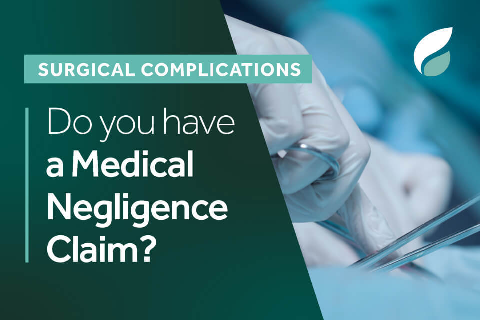

Do you have a surgical negligence claim?
Every surgery carries risk. But if you face a longer recovery period, ongoing health problems or life-changing disabilities due to negligent treatment, you have the right to claim the compensation you deserve.
Whether your surgery was delayed or you suffered avoidable injuries, our solicitors have the experience and expertise to guide you to a successful surgical negligence claim. Ensure that your injuries are recognised, your questions are answered, and you secure a settlement that protects your quality of life.

The specialist surgical negligence claims solicitors for Essex & East Anglia
Since 1993, our lawyers have supported hundreds of surgical negligence claims in Essex and East Anglia, achieving settlements in excess of £180,000 for our valued clients.
We know the toll surgical injuries can have on you and your loved ones. We investigate all evidence and work tirelessly to build a winning case, so you can turn the page on this difficult chapter. With our ‘no win, no fee’ guarantee and settling 96% of cases out of court, we help you gain justice with minimal stress and zero financial risk.
Surgical Negligence Claims Payouts & Compensation Guide
The amount of compensation you may recover from a surgical negligence claim can vary widely, depending on the type of surgical error, the severity of your injury, and how it has affected your life.
As specialist surgical negligence solicitors in Essex, we have secured settlements from £20,000 for short-term issues, to over £180,000 for life-altering injuries. Every claim is different, but with our decades of experience and unwavering commitment, we ensure our clients achieve the justice and compensation they deserve.
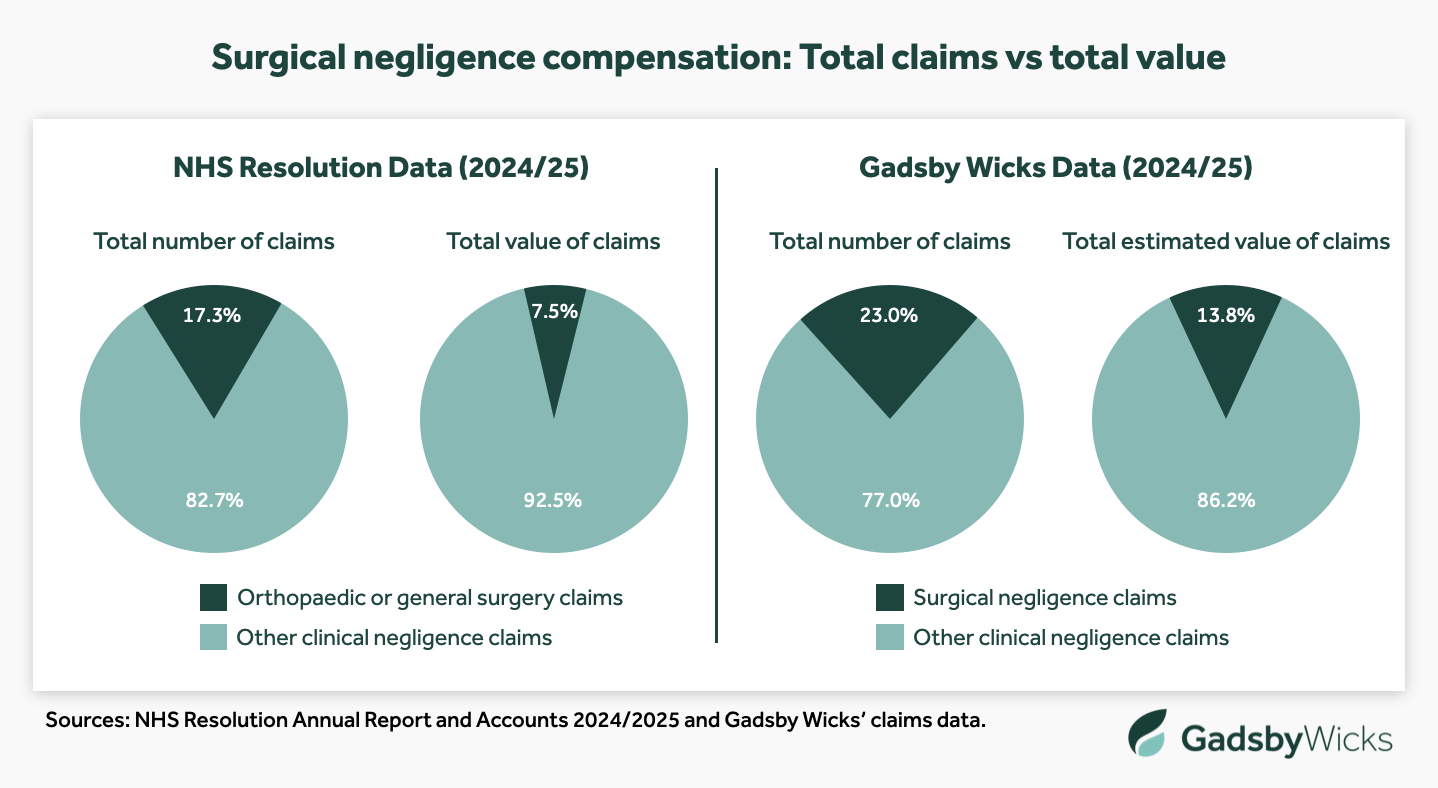
Understanding surgical claims compensation in the UK
Per the 2024/2025 data from NHS Resolution’s Annual Report & Accounts, orthopaedic surgery claims are the second-most common type of clinical negligence claim (11.5%). However, they account for only 3.9% of the total value of all claims (approximately £261.3 million).
These are both slight increases from 2023/2024, where orthopaedic surgery accounted for 10.8% of all clinical negligence claims and 3.2% of the total value of claims.
Our own data on surgical negligence claims in Essex tells its own story. Between 2024 and 2025, nearly a quarter (23%) of all claims we represented were due to surgical errors. Yet, this represented just 14% of the total estimated value of claims.
Furthermore, the frequency and value of these claims can fluctuate greatly year on year. In 2024, surgical negligence claims represented over 17% of our estimated case value from 22% of total claims. In 2023, it was less than 5% from 18% of the total claims.
Both NHS Resolution’s national data and our own local data illustrate that surgical negligence is a fairly common type of claim, but the value of these claims is variable, typically peaking in the hundreds of thousands of pounds rather than millions.
However, this greatly depends on the long-term impact of the injuries sustained. For example, a woman left tetraplegic following spinal surgery received a £4.4 million payout due to the significance of her injuries requiring lifelong care.
View our National and Essex Medical Negligence Statistics post for more information.
When discussing compensation for surgical errors, remember these two key details:
- Surgical negligence payouts are not lottery wins. Even in higher-valued claims, the compensation amounts only reflect the actual impact of the damages suffered.
- The scope for surgical negligence settlements is very varied. In our experience, surgical claims can range from five-figure sums to seven-figure payouts based on the impact on someone’s welfare and finances.
At Gadsby Wicks, our solicitors have extensive experience managing birth injury claims of any complexity, severity and value. No matter you or your loved one’s circumstances, we cover all bases to ensure you receive the compensation you rightly deserve.
How is surgical negligence compensation calculated?
Surgical negligence compensation is split into two areas: general damages and special damages.
General damages for surgical negligence claims
General damages represent compensation for the physical and psychological harm directly resulting from the surgical negligence – often described as “pain, suffering, and loss of amenity”.
When calculating general damages in surgical negligence cases, we may initially refer to the Judicial College Guidelines. This offers guideline compensation values for common injuries caused during surgery, which may include:
- Brain injuries (neurosurgery, misapplication of anaesthesia, etc.)
- Injuries causing paralysis
- Orthopaedic injuries (spine injuries, amputations, etc.)
- Injuries to internal organs (digestive system, bowels, hernia, etc.)
- Facial injuries (cosmetic surgery)
- Chronic pain
- Psychiatric and psychological damage
- Injuries resulting in death
We have included some figures relating to surgical negligence claims in the table below. Be advised that this is not a complete list due to the wide range of injuries that may be sustained during surgery. Remember that JCG guidelines are only rough estimates – surgical negligence compensation must be calculated on a case-by-case basis.
Additionally, JCG guidelines are more appropriate for personal injury cases. In medical negligence claims, clients are often already unwell or injured before surgery. So, we must consider if the patient was expected to return to their pre-injury state, and any ongoing health issues they would have even if the surgery was successful.
For example, in two cases we represented relating to substandard hernia repairs, one received £75,000 in general damages as our client developed ileus, pneumonia and a wound infection due to his injuries. In the other, general damages amounted to £45,000 as the repercussions were less severe (a large scar and prolonged recovery).
That is why you must seek advice from experienced, specialist surgical negligence solicitors. We evaluate every claim individually to ensure that general damages accurately reflect the physical and psychological harm suffered and our client’s personal circumstances.
| Severity | Estimated Value Range | Notes |
|---|---|---|
| Brain injury | ||
| Very severe | £344,150 - £493,000 | Little meaningful response to environment, little language function, double incontinence and full-time nursing care. |
| Moderately severe | £267,340 - £344,150 | Seriously disability, with a substantial dependence on others and a need for constant professional care. |
| Moderate | £52,550 - £267,340 | Moderate to severe intellectual deficit and effects on sight, speech, senses, concentration and memory. |
| Less severe | £18,700 - £52,550 | Similar problems to moderate cases, but will have made a good recovery and will be able to take part in normal social life. |
| Injury involving paralysis | ||
| Tetraplegia / Quadriplegia | £396,140 - £493,000 | Full-body paralysis where the injured person is in no physical pain, but has full awareness of their disability. |
| Paraplegia | £267,340 - £346,890 | Lower-half paralysis, with damages dependent on the extent of pain, degree of independence, life expectancy and more. |
| Back injury | ||
| Severe | Up to £196,450 | Severe back injuries, from soft tissue injuries causing chronic pain and disability, to significant spinal cord or nerve damage. |
| Moderate | Up to £47,320 | Where residual disability is less severe than above, from traumatic spondylolisthesis to a prolapsed intervertebral disc. |
| Minor | Up to £15,260 | Less serious strains, sprains, disc prolapses, soft tissue injuries and fracture injuries which recover without surgery. |
| Amputation of arms | ||
| Loss of both arms | £293,850 - £366,100 | Double-arm amputation that reduces a person with full awareness to a state of considerable helplessness. |
| Loss of one arm | £117,360 - £167,380 | Amputation of a single arm, with values depending on extent of amputation and if it's the person's dominant arm. |
| Wrist injury | ||
| Severe | £58,110 - £73,050 | Injuries resulting in complete loss of function in the wrist. |
| Moderately severe | £29,900 - £47,810 | Injury resulting in significant permanent disability, but where some useful movement remains. |
| Less severe | £15,370 - £29,900 | Less severe injuries where these still result in some permanent disability. |
| Head injury | ||
| Total loss of both hands | £171,680 - £245,900 | Extensive damage to both hands such as to render them little more than useless, including amputations. |
| Severe injury | £68,070 - £103,200 | Permanent cosmetic disability and significant loss of function. |
| Total loss of one hand | £117,360 - £133,810 | Injuries where all fingers and most of the palm have been traumatically amputated. |
| Moderately severe | £35,390 - £75,550 | Injuries that reduce the hand to about 50% capacity, such as gross diminuition of grip and dexterity. |
| Leg Injury | ||
| Loss of both legs | £245,900 - £344,150 | Both legs are lost, with awards dependent on above-knee or below-knee amputations. |
| Loss of one leg | £119,570 - £167,760 | One leg is lost, with awards dependent on above-knee or below-knee amputation. |
| Severe injury | Up to £165,860 | Serious injuries short of amputation, including degloving of the leg or shortening of the leg. |
| Less serious injury | Up to £33,880 | Fractures with incomplete recoveries or serious soft tissue injuries. |
| Bowel injury | ||
| Severe | Up to £224,790 | Cases involving double incontinence – total loss of bowel function and urinary function and control. |
| Moderately severe | Up to £183,190 | Total loss of natural function and dependence on colostomy (depending on age). |
| Moderate | In the region of £97,530 | Persistent faecal urgency and passive incontinence causing embarrassment or distress. |
| Less severe | £54,420 - £85,100 | Severe abdominal injury often necessitating temporary colostomy and/or restriction on diet and employment. |
| Hernia injury | ||
| Severe | £18,180 - £29,490 | Continuing pain and/or limitation on physical activities, sport or employment. |
| Facial disfigurement | ||
| Severe scarring | £21,920 - £59,090 | Where disfigurement is substantial and where there is a significant psychological reaction. |
| Significant scarring | £11,120 - £36,720 | Where the worse effects were reduced by plastic surgery, leaving some cosmetic disability. |
| Less significant scarring | £4,820 - £16,770 | One scar or several very small scars that mar but do not markedly affect the appearance. |
| Scarring to the body | ||
| Several scars | £9,560 - £27,740 | A number of noticeable laceration scars or a single disfigurement scar on legs, arms, hands, chest or back. |
| Single scar | £2,890 - £9,560 | A single noticeable scar, or several superficial scars on legs, arms or hands. |
| Chronic pain disorders | ||
| Severe | £51,410 - £76,870 | Significant, ongoing symptoms despite treatment, adversely impacting ability to work and requiring care/assistance. |
| Moderate | £25,710 - £46,970 | Symptoms are ongoing, albeit to a lesser degree than the above and a less marked difference on daily life. |
Special damages for surgical negligence claims
Special damages cover the financial consequences of surgical negligence – both immediate and long-term. These may include:
- Medical and rehabilitation expenses, such as ongoing treatment, therapies, medication and recovery programmes
- Equipment, accommodation, and transport, such as medical aids, home modifications, and specially adapted vehicles
- Care and support costs, including the cost of employing carers if required
- Loss of income, covering both current and potential future earnings
- Travel costs, such as journeys to and from hospitals, clinics and therapy appointments
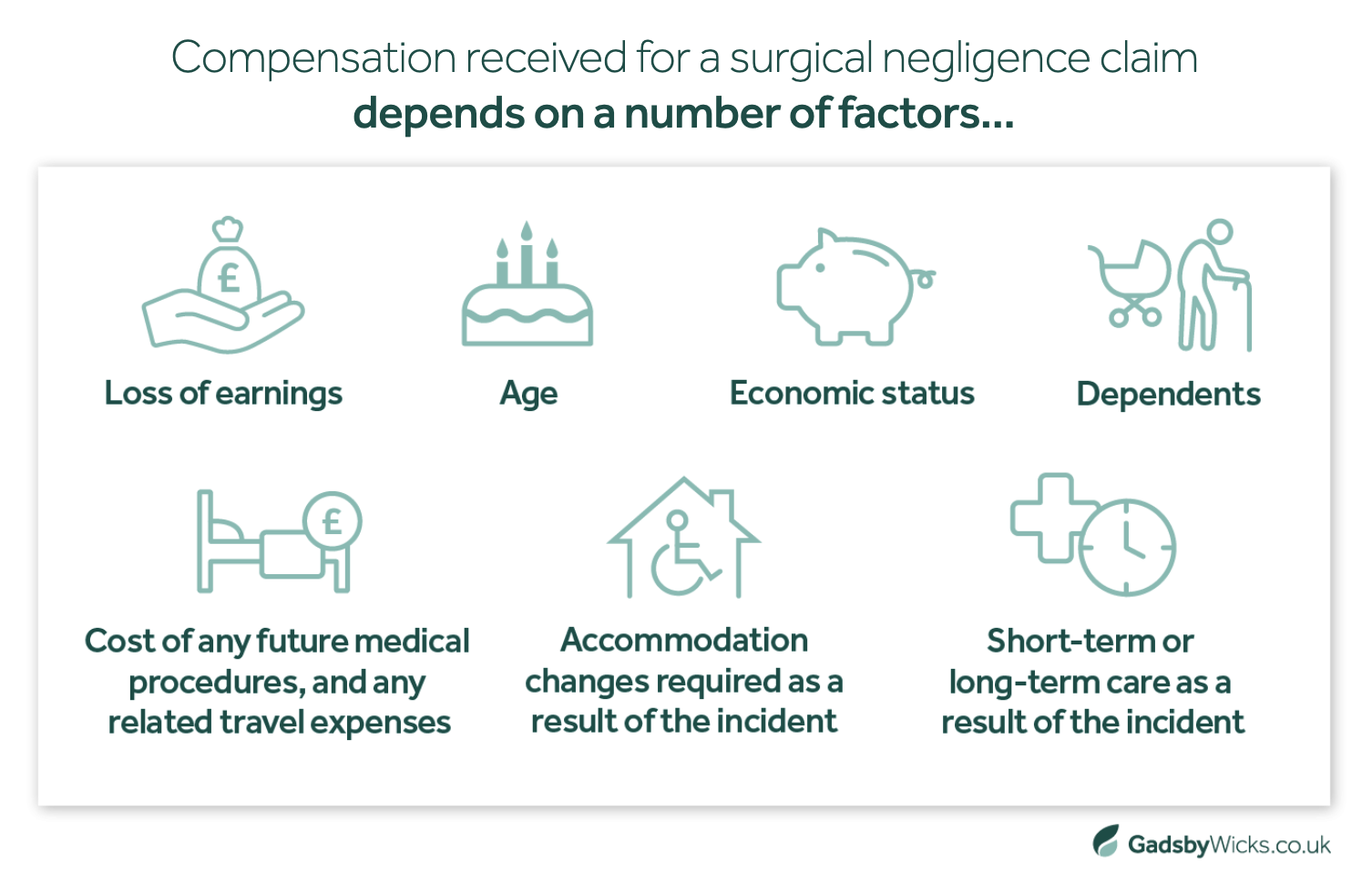
Special damages often represent the greatest variation in surgical negligence compensation values, as the amount awarded depends entirely on each individual’s personal circumstances and long-term care needs.
For example, when our client required additional surgery and a very prolonged recovery after mistakes made during her gallbladder surgery, £120,000 of her total settlement (£180,000) represented special damages.
As specialist surgical negligence solicitors in Essex, we collaborate with forensic accountants, case managers and other independent experts to assess the past and future financial impact of our clients’ injuries, ensuring that special damages accurately reflect their needs.
What is the average surgical negligence claim settlement in Essex?
We are often asked what the average surgical negligence claim settlement is worth. In reality, there is no such thing as an “average” surgical negligence settlement, because the nature and impact of surgical errors vary dramatically from one case to another.
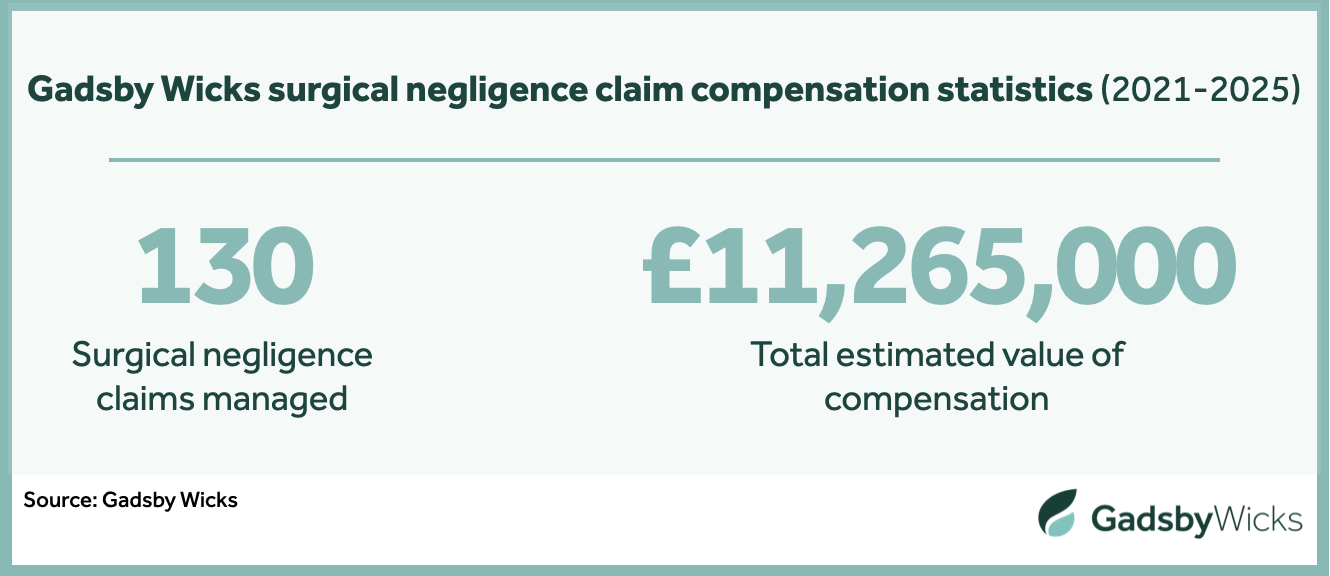
With over 30 years of experience handling surgical negligence claims in Essex, we’ve secured compensation ranging from tens of thousands of pounds for cases of inadequate outcomes to cosmetic surgery, to hundreds of thousands of pounds for lifelong injuries sustained during knee surgery.
A true medical negligence specialist never focuses on averages. We treat every client and every case as unique – ensuring that each surgical negligence payout provides the financial security and support our clients need, both now and in the future.
Should I use a surgical negligence compensation calculator?
Other law firms feature surgical negligence compensation calculators on their websites, promising quick estimates of claim values based on standardised information. However, these tools are often misleading.
In reality, a lot of online compensation calculators are designed to generate enquiries rather than provide accurate advice.
With decades of experience managing surgical negligence claims across Essex and East Anglia, our solicitors know that it’s impossible to value a claim properly without meeting the client in person and reviewing the available evidence.
We prioritise honesty and precision above all else, and never make promises we can’t deliver. Because every client’s experiences and injuries are unique, we take the time to understand your situation before estimating what your settlement might be worth.
Examples of surgical claim compensation amounts
Here are some examples of payouts we have recovered for surgical negligence claims in Essex and East Anglia:
- £180,000 after a surgeon clipped our client’s bile duct during gallbladder removal, requiring additional surgery and resulting in a prolonged recovery
- £131,500 for a client who developed ileus, pneumonia and a wound infection following a negligent hernia repair
- £80,000 for a woman whose ureter was damaged during a hysterectomy, leading to several urinary tract infections and reduced renal function
- £55,000 for mistakes made during a DIEP flap reconstruction that prevented our client from receiving a future breast reconstruction
- £48,750 after our client was wrongly offered treatment for an enlarged prostate he did not have, leading to lifelong faecal and urinary incontinence
- £30,000 for a poorly performed breast reduction surgery, meaning our client required further cosmetic surgery to fix this
Case studies for some of our surgical negligence claims
What does our surgical negligence claims process look like?

A free initial consultation
Call us, request a callback or complete our online form and we’ll assess if you have a valid medical negligence claim.

Funding your claim
Discover the ways we can fund your claim without you paying a penny at any stage of the process.

Investigating evidence
We gather medical records, witness statements and more to learn what happened to you and prove your claim.

Instructing independent medical experts
We work with impartial, experienced medical experts to establish whether your injuries were due to substandard medical care.

Valuing your claim
We assess your health and financial losses to accurately estimate how much compensation your claim is worth.

Presenting your case
We contact the Defendants and the Courts on your behalf to set out your allegations and receive a response.

Negotiating a settlement
We work to achieve a fair settlement for you outside the courtroom – this is how 96% of our cases end.

Preparing for Trial
If we must proceed to Trial, we fully prepare you for what to expect so you receive the right result in court.
FAQs about surgical negligence claims
What is a surgical complication?
A surgical complication is any unwanted outcome that occurs either during or shortly after a surgical procedure. This ranges from minor injuries that heal over time, to severe complications that cause life-altering disabilities or tragically even death.
Examples of surgical complications include (but are not limited to):
- Avoidably delayed surgery
- Wrong-site surgery
- Substandard surgical technique
- Poor anaesthesia application
- Preventable surgical errors
- Inadequate post-operative care
Patients may require further surgery to repair the damage caused by surgical complications, or be left to manage ongoing health problems or disabilities.
What are the main causes of surgical errors?
Some of the most common causes of surgical errors during operations include:
- A loss of concentration at a crucial moment could result in cutting a nerve or blood vessel
- The surgeon might mistake landmarks and structures, resulting in them performing unnecessary surgery on the wrong part of the body
- The surgeon may fail to double-check that they have performed an action correctly, or assume that it has been performed correctly
- There may be a failure to monitor a patient’s heart rate and breathing
- The anaesthetist may use too much anaesthetic, putting the patient’s health at risk, or too little, which could result in an anaesthesia awareness claim
If you or someone you love has been affected by any of the above or similar surgical errors, contact our team to access 30+ years of experience in surgical negligence claims.
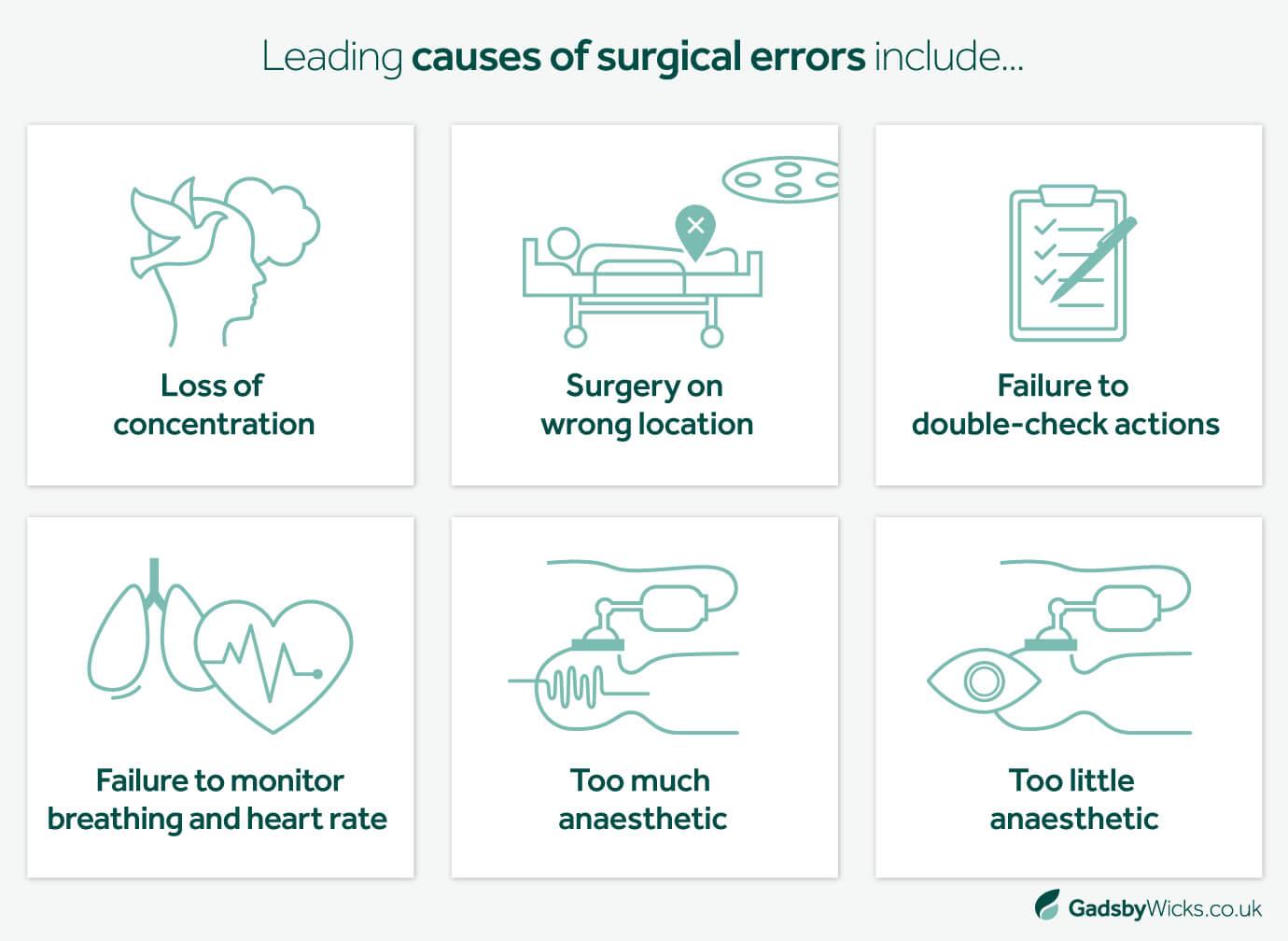
When is medical negligence to blame for surgical complications?
A negligent surgery claim case occurs when an error(s) made by a surgeon is something that no reasonable surgeon in the same position would have made.
Not all surgical errors will be considered negligent. For instance, in some abdominal surgeries or weight loss surgeries, a surgeon must perform actions ‘blind’, through touch alone. In these circumstances, it may be considered reasonable if they mistakenly damage a nerve, blood vessel or organ.
However, if the surgeon does not recognise this risk, and the affected area is not monitored post-surgery to check if anything did go wrong, this could lead to a negligence claim if the patient becomes unwell or suffers further injury.
In another example, if a patient is overweight and undergoing their fourth abdominal surgery, it may be more justifiable if damage is caused to surrounding structures compared to someone undergoing their first abdominal surgery.
Other surgery-related cases can include amputation errors, misdiagnosing conditions, or delayed treatments leading to further or prolonged issues.
As highly experienced surgical negligence claims solicitors, we engage with impartial surgeons, working in the same field as the Defendants, to determine whether they failed in their duty of care.

What are never events?
'Never events' are entirely preventable incidents, such as:
- Swabs or instruments being left inside the body
- The wrong procedure or surgery being performed on the wrong part of the body or on the wrong person
- The wrong type of blood was given during a blood transfusion
We have helped many people affected by never events make successful surgical compensation claims.
What are some common types of surgical complications?
Common types of surgical complications include:
- Mistakenly damaging a nerve or cutting a blood vessel, which gradually restricts blood flow to particular nerves
- A patient might develop a DVT from lying still during long operations if they are not regularly moved or provided with DVT prophylaxis
- They leave instruments or other objects inside a patient’s body
Below are some more specific surgical complications that can lead to surgical negligence claims:
Orthopaedic surgery claims
Many orthopaedic procedures involve joint replacements. In these situations, the wrong size replacement may be chosen, which can cause severe pain and loss of range of movement. It is also possible for a defect to be overcorrected or undercorrected. We have handled many knee surgery claims and claims for hip replacements.
Gynaecological surgery claims
During gynaecological surgery, there is a risk that a surgeon mistakenly damages a patient’s bowel or bladder, particularly during laparoscopic procedures, which causes the patient harm post-surgery.
Another possible error could be a poor consenting process that results in a patient undergoing an unnecessary hysterectomy, when their condition could have been resolved with medication, leading to less permanent consequences.
Weight loss surgery claims
It is possible that the wrong type of bariatric procedure – be it a gastric band, gastric sleeve or gastric bypass – is conducted, leading to unintended results for the patient.
In other circumstances, a surgeon or other healthcare professional may fail to competently monitor a patient’s condition post-surgery, to assess whether any unintended damage was done to a structure during a ‘blind’ procedure.
Spinal injury claims
Several mistakes can occur during spinal surgery, ranging from surgery being performed at the wrong position on the patient’s spine, to the risk of overstretching or cutting a nerve in the spinal cord.
Gallbladder compensation claims
During a cholecystectomy (removal of the gallbladder), a surgical error might cause bile or gallstones to escape and cause damage to the abdomen if not washed out.
It is also possible to injure the common bile duct. This can allow bile to leak out and can lead to infections, blockages and ongoing digestive issues, as well as necessitate future surgeries.
Cosmetic surgery claims
A mistake during cosmetic surgery can result in a patient not receiving the outcome they agreed with their surgeon, such as nipples being incorrectly positioned following breast surgery, which necessitates further corrective procedures. View more information about breast surgery negligence claims.
It is also possible for a patient’s features to be asymmetrical following surgery, or that areas to be made larger or smaller than intended.
Infection from surgery claims
In a hospital or healthcare setting, open surgical wounds and cuts can provide entry points for bacteria and viruses to enter the body. As a result, infection is a notable potential complication following surgery.
Anaesthesia awareness claims
When mistakes are made administering anaesthesia, patients can regain consciousness mid-procedure. While cases of anaesthesia awareness are rare, this traumatic experience can cause lasting emotional and psychological damage.
How do I make a surgical complication claim and what should I expect?
We understand that the claims process can be difficult to navigate, so we are always transparent about what you can expect.
Our expert lawyers are with you every step of the way, and we commit the time and resources necessary to fully investigate your negligent surgery claim. We will examine all available evidence to determine if your medical care was substandard, including:
- Medical records
- Claimant statements
- Witness statements
- Complaint correspondence
- Independent medical opinion
We have a database of independent surgeons with relevant medical and legal knowledge to help us determine whether your surgeon’s actions were unreasonable and directly responsible for your pain, suffering or loss.
We will also speak to relevant medical experts to establish how much your situation has changed compared to if your surgery were performed correctly. This will play a key role in quantifying the compensation you deserve.
We work on a ‘no win, no fee‘ agreement – you only pay if we win your case. Our payment is recovered from the settlement you receive, and we never ask you to pay anything at any stage of the claims process.
Contact our expert surgical negligence claims solicitors
If you or a loved one suffered a surgical injury and would like to speak to someone about your options, our team is here to listen and advise you on your next steps.
Featured surgical negligence claims insights


Recognising the impact of spinal cord injury complications

Lexcel accredited medical negligence claims solicitors
We are proud to be a Lexcel-accredited practice. The accreditation is a mark of quality and comes directly from the Law Society.
A recent assessment described us as a “Centre of Excellence” and we continue to operate to the highest standards across all main areas of our field. These include client care, case management, financial management, structure and strategy, people management, risk management, information management and file management.



